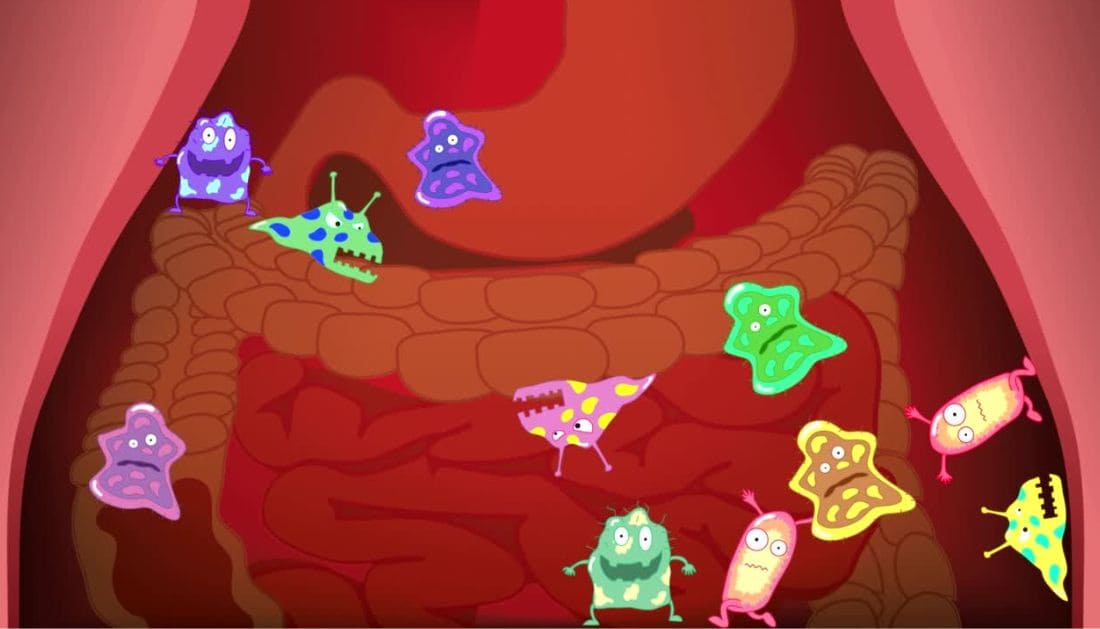

A recent study by Kobe University has revealed that gut microbes, previously thought to rely solely on dietary fiber, also metabolize sugar from our intestines to produce short-chain fatty acids (SCFAs). These SCFAs play a crucial role in various bodily functions, including gut health and metabolism. The discovery, published in Communications Medicine, opens new doors for therapeutic strategies targeting gut microbiota.
Breakthrough in Gut Bacteria Research
The human gut is home to trillions of microbes that support digestion, immune function, and metabolic processes. A key byproduct of microbial metabolism is short-chain fatty acids (SCFAs), which serve as the primary energy source for intestinal cells and influence overall health. Until now, SCFAs were believed to come exclusively from the fermentation of indigestible fiber.
However, Dr. Ogawa Wataru and his team at Kobe University discovered that glucose is naturally excreted into the small intestine, where it is then converted into SCFAs by gut bacteria. This finding challenges previous assumptions and highlights a new symbiotic relationship between the gut microbiome and the human body.
How the Process Works
Using innovative bioimaging and metabolic analysis techniques, researchers tracked glucose movement through the intestines. They found that:
- Glucose is excreted in the jejunum, a part of the small intestine, and then transported to the large intestine and rectum.
- Gut bacteria transform glucose into SCFAs, such as acetate, propionate, and butyrate, which play key roles in immune function, metabolism, and gut health.
- The widely used diabetes drug metformin significantly increases glucose excretion, amplifying this SCFA production process by nearly four times.
Dr. Ogawa stated, “The discovery that glucose excretion supports SCFA production adds a new layer to our understanding of gut microbiota and could lead to novel treatments for metabolic disorders.”
Implications for Future Therapies
Understanding this newly identified pathway may offer therapeutic potential for conditions like diabetes, obesity, and inflammatory gut diseases. If drugs like metformin enhance glucose excretion into the gut, they may indirectly influence gut microbiota composition and SCFA production, providing additional metabolic benefits beyond blood sugar control.
Dr. Ogawa and his team are now conducting further research to explore how other diabetes medications affect this glucose-SCFA pathway and whether targeted interventions could enhance gut microbiome health.
“This study suggests that manipulating intestinal glucose excretion could become a novel therapeutic strategy to regulate gut microbiota and their metabolic outputs,” Ogawa added.
As gut microbiome research advances, targeting microbial metabolism could pave the way for next-generation therapies that optimize gut health and prevent metabolic diseases.
More Information: Metformin-regulated glucose flux from the circulation to the intestinal lumen, Communications Medicine (2025). DOI: 10.1038/s43856-025-00755-4
more recommended stories
 Tuberculosis Breakthrough with Experimental Antibiotics
Tuberculosis Breakthrough with Experimental AntibioticsKey Takeaways Experimental antibiotics disrupt a.
 National Healthy Longevity Trial Receives Federal Support
National Healthy Longevity Trial Receives Federal SupportKey Summary Up to $38 million.
 Red Blood Cells Improve Glucose Tolerance Under Hypoxia
Red Blood Cells Improve Glucose Tolerance Under HypoxiaKey Takeaways for Clinicians Chronic hypoxia.
 Nanoplastics in Brain Tissue and Neurological Risk
Nanoplastics in Brain Tissue and Neurological RiskKey Takeaways for HCPs Nanoplastics are.
 AI Predicts Chronic GVHD Risk After Stem Cell Transplant
AI Predicts Chronic GVHD Risk After Stem Cell TransplantKey Takeaways A new AI-driven tool,.
 Red Meat Consumption Linked to Higher Diabetes Odds
Red Meat Consumption Linked to Higher Diabetes OddsKey Takeaways Higher intake of total,.
 Pediatric Crohn’s Disease Microbial Signature Identified
Pediatric Crohn’s Disease Microbial Signature IdentifiedKey Points at a Glance NYU.
 Nanovaccine Design Boosts Immune Attack on HPV Tumors
Nanovaccine Design Boosts Immune Attack on HPV TumorsKey Highlights Reconfiguring peptide orientation significantly.
 High-Fat Diets Cause Damage to Metabolic Health
High-Fat Diets Cause Damage to Metabolic HealthKey Points Takeaways High-fat and ketogenic.
 Acute Ischemic Stroke: New Evidence for Neuroprotection
Acute Ischemic Stroke: New Evidence for NeuroprotectionKey Highlights A Phase III clinical.

Leave a Comment